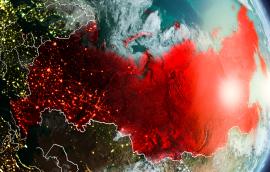Houthi Red Sea Attacks Impose ‘Economic Sanctions’ on Israel’s Backers
Yemen’s Houthi have mounted a selective counter-shipping campaign in the Red Sea that has disrupted global trade between Asia and Europe. In a new issue brief, fellow Jim Krane describes how the attacks have triggered major shipping delays and expenses for firms based in countries friendly to Israel — effectively acting as economic sanctions and demonstrating the power of a non-state actor to undermine global norms around freedom of navigation.
Jim Krane March 1, 2024








